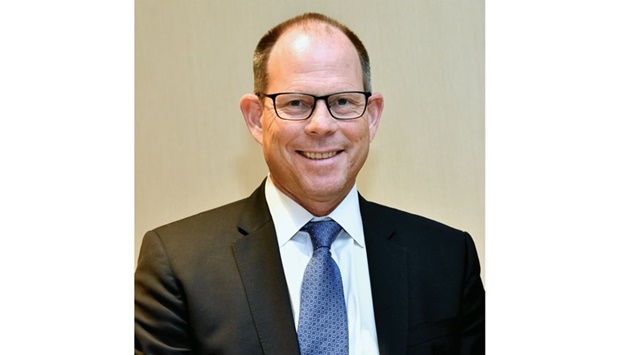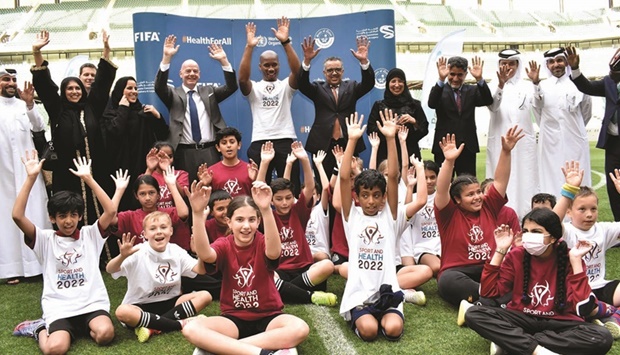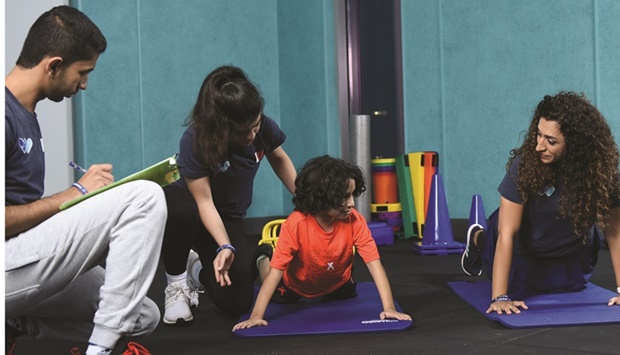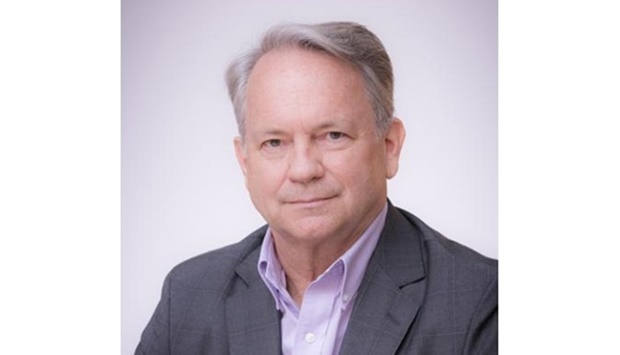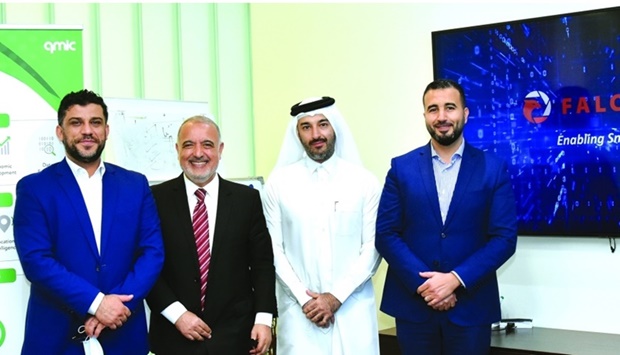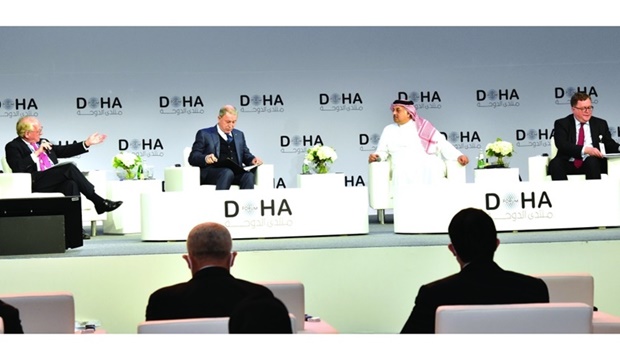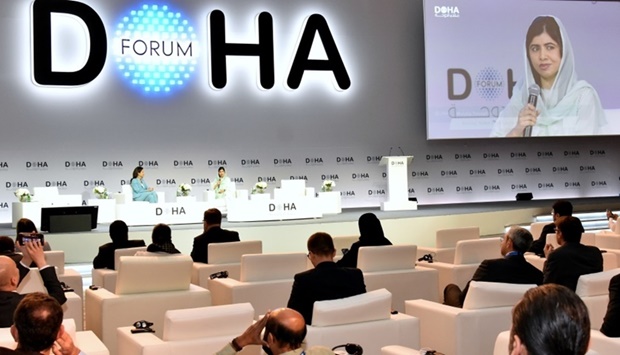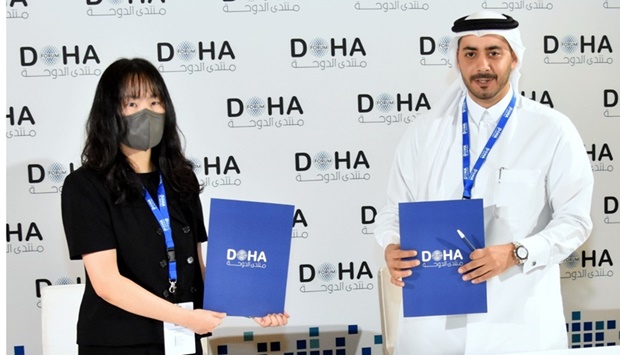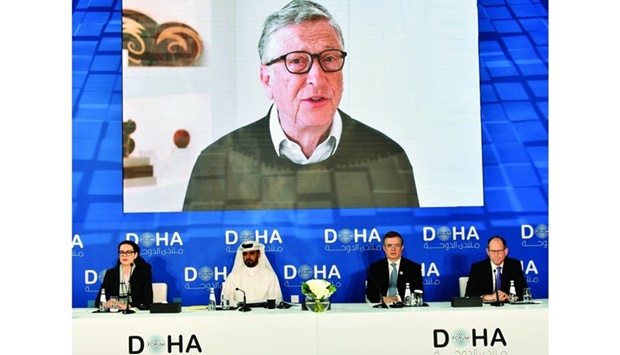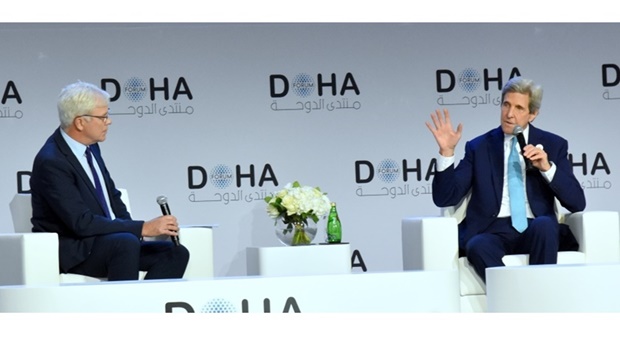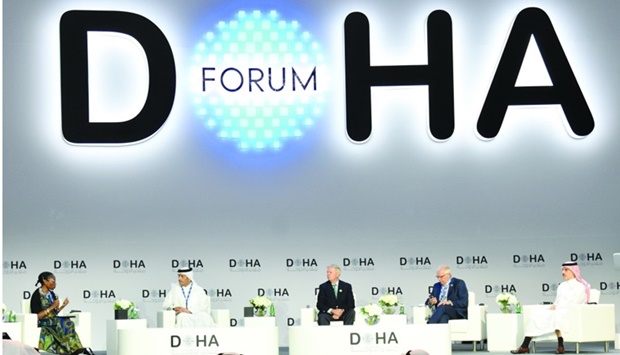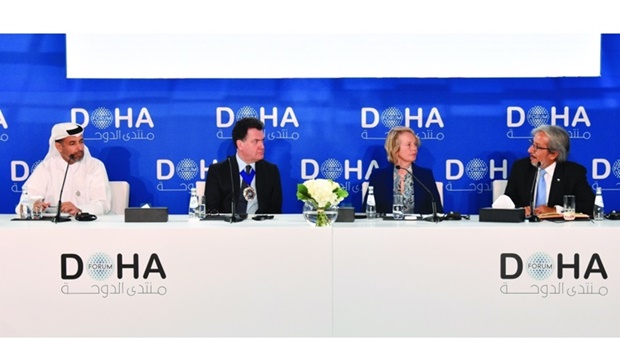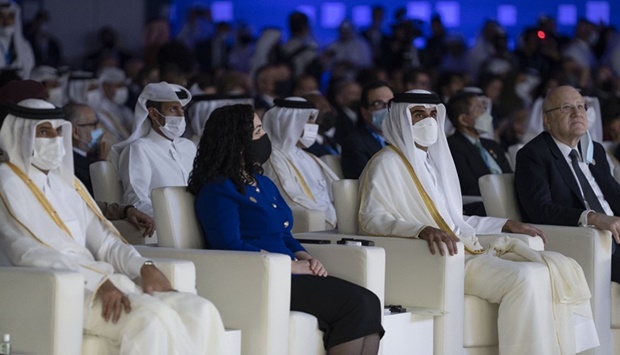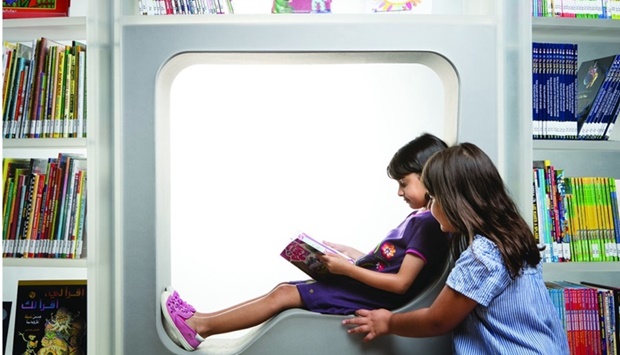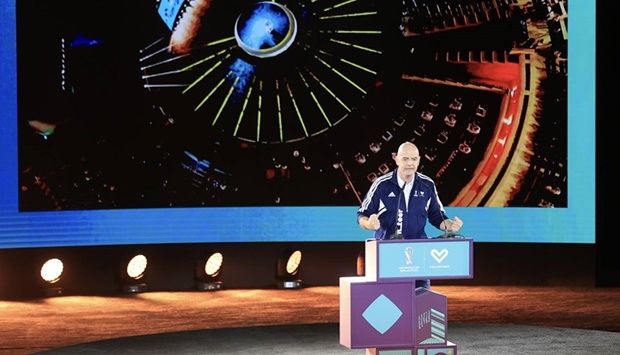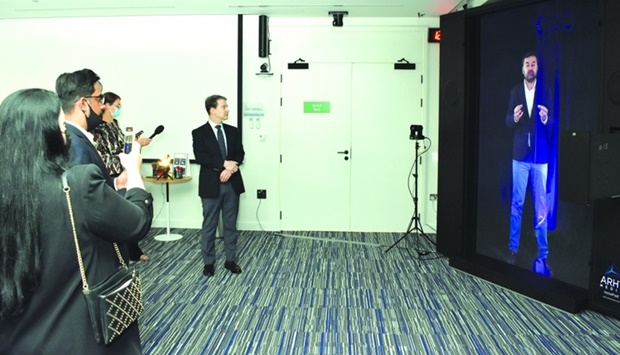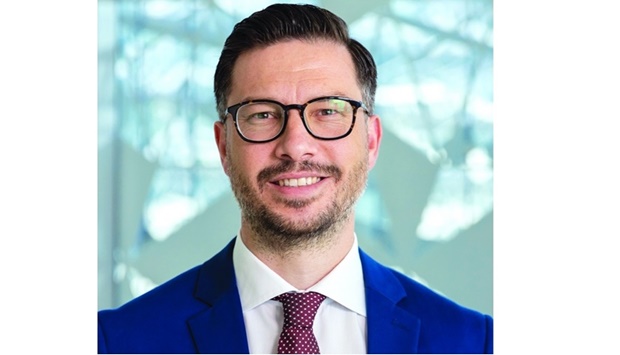Qatar believes in resorting to dialogue and diplomacy in dealing with conflicts and has been following the path every occasion, noted HE Sheikh Mohamed bin Abdulrahman al-Thani, Deputy Prime Minister and Minister of Foreign Affairs, Saturday.
Taking part in a plenary session at Doha Forum 2022 under the topic ‘Transforming for a New Era,’ Sheikh Mohamed said: “We can't be isolated from what is happening around the world. We have to play an active role and provide at least a positive contribution to international peace and stability. I believe that Qatar has been building a track record in dialogue and diplomacy in different complex areas.”
The other members at the panel included Faisal bin Farhan al-Saud, Foreign Minister of Saudi Arabia; Josep Borrell, High Representative of the European Union for Foreign Affairs and Security Policy and US Senator Lindsey Graham, Ranking Member of the Senate Committee on Budget. The session was moderated by Dr Comfort Ero, president and chief executive officer, International Crisis Group.
HE Sheikh Mohamed said that Qatar is conscious of regional stability and international peace. “Being an effective member of international community is very important. It is satisfying if we can contribute to the peace and stability of our region and maintain international security. For us it is very important to maintain the international order, to maintain international legitimacy and preserve the UN charter and preserve the international law,” explained HE Sheikh Mohamed.
He noted: “For us to make sure that our region is safe is directly in our national interest. To be a platform for diplomacy and dialogue is also important for us.”
According to him, any transition is normally a bumpy one. “We have developed an inter-connectedness with other countries in the past decades. We cannot be isolated or unaffected by any global crisis. One major issue we are talking about is climate change, which is a global issue. That is going to affect all of us. What the international community is doing today in order to anticipate the consequences of this crisis is a 'late answer', but we must work collectively to confront this phenomenon," he said.
“Another issue is the pandemic of Covid-19. We are still living through the consequences of Covid. Another major problem is the geopolitical crisis. It directly has its impact, first on the direct neighbours and then on others and the entire world,” he said.
HE Sheikh Mohamed said that dialogue is the only way forward and the only way to end any crisis or any potential conflict. “It has been proven that dialogue is the right way. For the current crisis, we need to provide, short-term, midterm and long-term solutions in order to preserve international peace. Conflicts result in many ways. The Russia-Ukraine issue is impacting the food supply and it is impacting the energy market too. All the conflicts should be addressed diplomatically,” he said.
Al-Saud noted that it is important to work with all the countries to set the transformation into a new era. “We are working with other countries and the global south in every major issue such as access to water, access to education, access to health as well as all other basic needs. Priority is always given to the suffering population and to address the issues in line with national and international guidelines,” he said.
Senator Graham highlighted the need to stop Russian aggression on Ukraine and Borrell advocated the need for implementing rule of law in every action.
HE the Deputy Prime Minister and Minister of Foreign Affairs Sheikh Mohamed bin Abdulrahman al-Thani underlined that Qatar has a long record of dialogue and diplomacy in several areas of conflict, including Sudan and Lebanon, and between Djibouti and Eritrea, stressing that dialogue is the only way forward and the only way to end any potential crisis or conflict, Qatar News Agency reported.
Speaking at the opening session of Doha Forum 2022 Saturday, he highlighted Qatar's commitment to the international principles and international law, which represent the basis for all its stances with all political crises, affirming that Qatar is against assaulting the sovereignty of any country, interfering in its internal affairs, or using force against it, "Qatar is against any use of force against civilians," he stressed.
HE Sheikh Mohamed noted the importance to deal with all international issues on an equal footing, especially with regard to humanitarian crises. "In Ukraine, we know that there are concerns between the two parties, and these concerns must be addressed diplomatically. This also applies to the Palestinian issue and the Israeli occupation, and we want to see the same results. Our standards have always been unified and consistent to a large extent despite all the pressures, and we must abide by these principles. We also urge all countries in the international community to work to protect and apply these principles on an equal footing," he added.
"We have never seen a war that ended on the battlefield. The solution to any crisis is always around the dialogue table through diplomatic talks and agreement between the two parties, and this is the only way. Therefore, we believe that in light of the current crisis in Ukraine, we must provide solutions in the short, medium and long term in order to preserve the world order," he continued.
HE the Deputy Prime Minister and Minister of Foreign Affairs added that the suffering seen in Ukraine was similar to the suffering of many countries in the region for years, however, nothing have happened and there was no global response to this suffering. "We were praying for a precedent in the region in response to the brutality against the Palestinian, Syrian, Iraqi, Libyan or Afghan people."
He indicated that the absence of a global response to these actions and the lack of accountability of the people responsible for violence will lead to more violence, expressing his hope that the war of Ukraine would serve as a wake-up call for the international community to look at "our region" and deal with the issues that emerge in it on the same level of commitment that have been seen in the conflict between Russia and Ukraine, and that this crisis is dealt with in a diplomatic manner that leads to an end to the conflict and human suffering.
HE the Deputy Prime Minister and Minister of Foreign Affairs stressed the importance to maintain the world order and international legality and preserve the Charter of the United Nations and the principles of international law, "because we are already a small country protected by these multilateral measures, as well as all other countries."
"Some claim that we are a small country that aspires to more than it can achieve, this is not the issue. Rather, it is the issue of stability of the region and ensuring peace in it if we are able to play a role for more stability and peace in the region and for the maintenance of international peace and security, which is in our direct national interest. Therefore, it is important for us to be a platform for diplomacy and dialogue, and to contribute to enhancing security and stability in the region. We cannot be isolated from what is happening in the rest of the world, rather we must play an active role in order to make a positive contribution to achieving international stability," HE Sheikh Mohamed said.
Regarding the current situation with Iran and whether there is an imminent peace agreement with it, he underlined the importance of maintaining stability in the region, and that there be an agreement on the nuclear issue in Iran, stressing the need for this step to be followed by other regional steps in order to deal with the security repercussions.
He believed that the only way to ensure international security is the same way Qatar views all disputes, which is to deal with them diplomatically, because it is the best way to deal with the elements of concern for each party separately.
He added that the Joint Comprehensive Plan of Action (JCPOA) is an important agreement at least to ensure that there is no nuclear arms race taking place in the region, noting the need to supplement this agreement with interaction and participation in the Gulf region with Iran so that they have a comprehensive approach.


